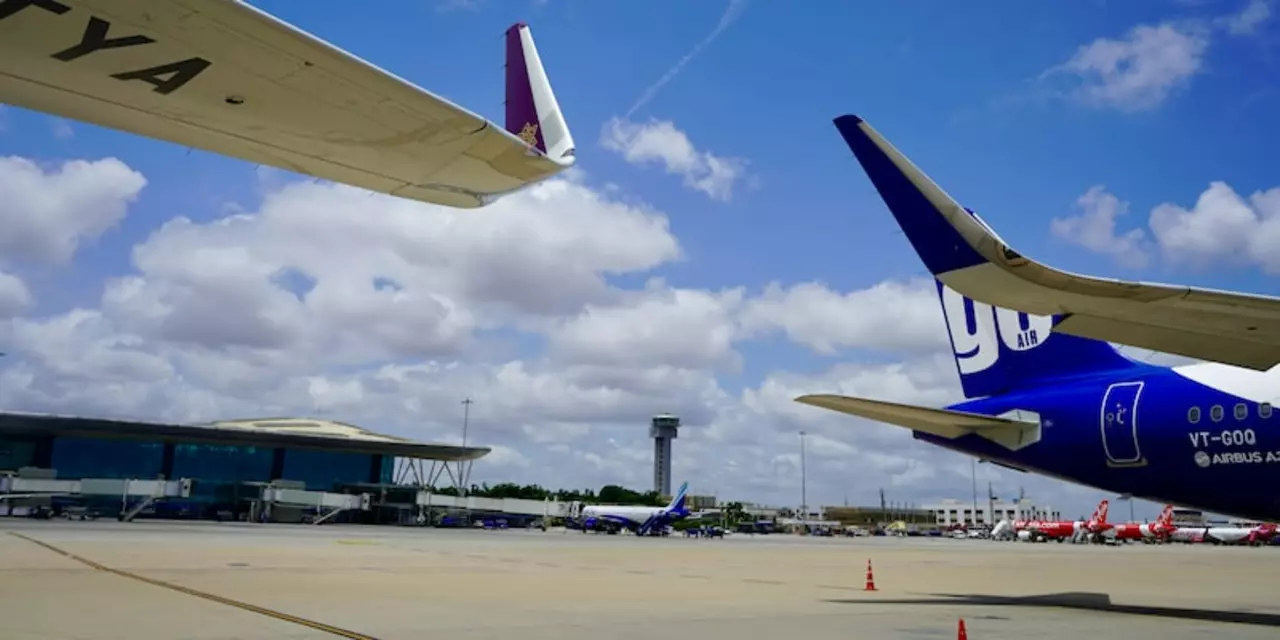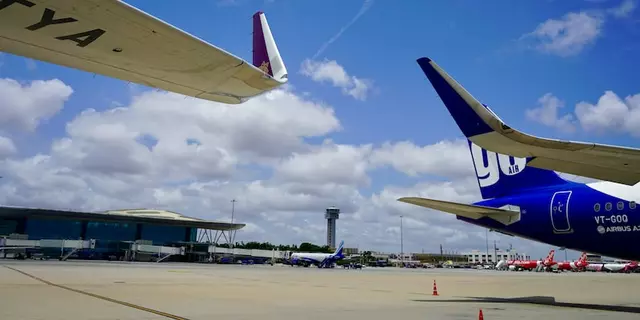Examining the Challenges Facing Tata in its Acquisition of Air India
Tata Group, India’s largest business conglomerate, has recently acquired Air India, the nation’s flag carrier. While the acquisition of Air India by Tata is seen as a move that can help revive the ailing airline, it also comes with several challenges. In this article, we will examine the biggest challenges that Tata may face in its acquisition of Air India.
Challenge 1: Financial Issues
Air India has been facing financial difficulties for many years now. With rising fuel prices, increased competition, and the pandemic, Air India is dealing with a huge debt burden of around ₹58,000 crore. To revive the airline and make it a viable business, Tata will need to resolve the financial issues faced by Air India, which is a daunting task. Tata will need to identify and implement cost-cutting measures, restructure Air India’s debt and look for new sources of funding.
Challenge 2: Reviving the Brand
Air India’s brand image has been suffering for many years. Due to the financial issues, the airline has neglected its customer service and product offerings. To revive the brand image of Air India, Tata will need to invest in improving the customer experience and product offerings. This will require a significant amount of time and resources which Tata may not have.
Challenge 3: Competition
Air India is facing strong competition from other domestic and international airlines. To make Air India a successful venture, Tata will need to differentiate the airline from its competitors. This could include offering innovative products, leveraging technology, and providing a superior customer experience. Tata will also need to find ways to reduce costs and increase revenue to make Air India more competitive.
Challenge 4: Employee Morale
Air India employees have been facing a lot of uncertainty due to the airline’s financial struggles. To ensure that the employees are motivated and committed to the revival of Air India, Tata will need to focus on improving employee morale. This could include increasing salaries, offering incentives, and implementing better working conditions.
Conclusion
Tata’s acquisition of Air India is a bold move, and it comes with many challenges. Tata will need to address the financial issues, revive the brand image, compete with other airlines, and improve the employee morale in order to make Air India a successful venture. Only then will Tata be able to make Air India a success.
Exploring the Potential Benefits of Tata’s Acquisition of Air India
The potential rewards of Tata Group’s acquisition of Air India are vast. Tata, one of India’s largest conglomerates, is no stranger to the aviation industry. They currently own Vistara, a full-service airline, as well as AirAsia India, a low-cost carrier. With the addition of Air India, they can expand their reach in the Indian market and create a comprehensive aviation portfolio.
The acquisition of Air India would also provide Tata with a wide array of benefits. For starters, Air India provides access to a large and growing customer base. With the Indian middle class projected to reach 583 million by 2025, Air India’s customer base is set to expand significantly. This would enable Tata to tap into a larger pool of potential customers, which could lead to increased revenue.
Tata would also gain access to Air India’s fleet of over 140 aircraft. This would allow them to expand their routes and offer customers more options. Additionally, the acquisition of Air India’s existing infrastructure would also provide Tata with cost savings. This would enable them to be more competitive in the aviation industry and better position them against their competitors.
The acquisition of Air India would also provide Tata with an opportunity to further their presence in the international market. Air India’s international routes would provide Tata with the opportunity to expand their reach and attract more customers. Additionally, Air India’s strong presence in the global market could help Tata increase their global recognition and brand visibility.
Overall, the potential benefits of Tata’s acquisition of Air India are immense. With access to a large and growing customer base, cost savings, and opportunities to expand their presence in the international market, Tata could be well-positioned to succeed in their pursuit of Air India. Whether or not they will be successful, however, remains to be seen.
Will Tata's Acquisition of Air India be a Smart Move?
Tata Group, the Indian conglomerate, has been in talks to purchase Air India, the ailing state-owned airline. The Tata Group is no stranger to the aviation industry, having established Vistara and AirAsia India in joint ventures with Singapore Airlines and AirAsia, respectively.
But will Tata be successful in taking over Air India? There are a few factors to consider. First, Air India is a state-run entity, and the government has yet to make a decision on who should acquire the airline.
The second factor to consider is Air India's debt burden. The airline has accumulated a massive amount of debt over the years, and it will be difficult for Tata to negotiate a deal with the government that satisfies all parties.
The third factor is the potential competition from other airlines. The Indian aviation market is already crowded, and it's possible that the acquisition of Air India by Tata could create an even more competitive environment.
Finally, there is the issue of branding. Air India has been in operation for decades, and it has a strong brand presence in India. Tata will need to carefully consider how to leverage the Air India brand in order to maximize its success.
Overall, Tata's acquisition of Air India could be a smart move, but it will depend on the details of the deal and how the airline is managed going forward. With the right strategy and careful management, Tata could be successful in its acquisition of Air India.
How Will Tata Overcome the Operational Challenges of Air India?
The acquisition of Air India by Tata Group is a landmark venture for not just the group, but for the entire aviation industry in India. With a view to making Air India more profitable, there are several operational challenges that Tata will have to overcome. The challenges are complex and require proper management and financial acumen to be solved.
The first challenge that Tata will face is to reduce the operating costs of Air India. Air India has been consistently losing money due to high operating costs. To counter this, Tata will have to look at ways to reduce the costs of operations, such as renegotiating contracts with suppliers, cutting down on non-essential services, and streamlining the organizational structure of the airline. Additionally, Tata will also need to increase efficiency by investing in new technology and training staff.
The second challenge is to increase revenues. Air India has been struggling to generate adequate revenues due to competition from other airlines and low passenger traffic. To increase revenues, Tata will need to focus on marketing the airline’s services and improve customer service. It will also need to look at ways to increase passenger traffic, such as providing attractive offers and discounts. Additionally, it will need to launch new routes to increase its market share.
The third challenge is to improve customer service. Air India has been struggling to provide a satisfactory customer experience, which results in poor customer satisfaction. To improve customer service, Tata will need to invest in training staff to provide better customer service. Additionally, it will need to invest in technology to help streamline processes and provide better customer experience.
Finally, Tata will need to focus on building a strong brand image. Air India currently has a negative image due to its poor performance in the past. To build a positive brand image, Tata will need to invest in marketing and advertising campaigns to promote the airline’s services. Additionally, it will need to focus on customer service and ensure that passengers have a satisfactory experience.
Overall, these are some of the operational challenges that Tata will have to overcome to make Air India a successful venture. With proper management and strategic investments, Tata can overcome these challenges and make Air India a profitable venture.
Analyzing the Impact of Tata’s Acquisition of Air India on the Aviation Industry
A new chapter in aviation industry has been opened with Tata Group’s acquisition of Air India. The move, taken by the Indian conglomerate, has been of great importance in the industry and has raised many questions. This article will analyze the impact of Tata’s acquisition of Air India on the aviation industry.
Why Tata Acquired Air India
The main reason behind this acquisition is that Tata plans to use Air India as a means to expand their overall presence in the aviation sector. By acquiring Air India, Tata will be able to gain access to the existing infrastructure and resources of Air India. This will help them to strengthen their overall business in the aviation sector. Moreover, Air India has a huge market share in the aviation industry and will help Tata in establishing themselves as a major player in the industry.
Exploring the Impact of This Acquisition
The acquisition of Air India by Tata has had a positive impact on the aviation industry. It has opened up new opportunities for the industry and has created a more competitive atmosphere. This has led to lower prices for passengers, thus making air travel more affordable. Moreover, the acquisition has also helped to promote innovation and research within the industry. This has enabled it to become more competitive by introducing new technologies and services.
Furthermore, the acquisition of Air India has also had a positive effect on the Indian economy. The injection of capital into the aviation sector has led to increased employment opportunities and has helped to boost the GDP of India. This has also helped to improve the living standards of the people in the country.
Conclusion
In conclusion, Tata’s acquisition of Air India has had a positive impact on the aviation industry. It has helped to make air travel more affordable and has also helped to promote innovation and research. Moreover, it has had a positive effect on the Indian economy by creating employment opportunities and boosting the GDP. Therefore, it can be said that Tata’s acquisition of Air India will be successful for the aviation industry.






